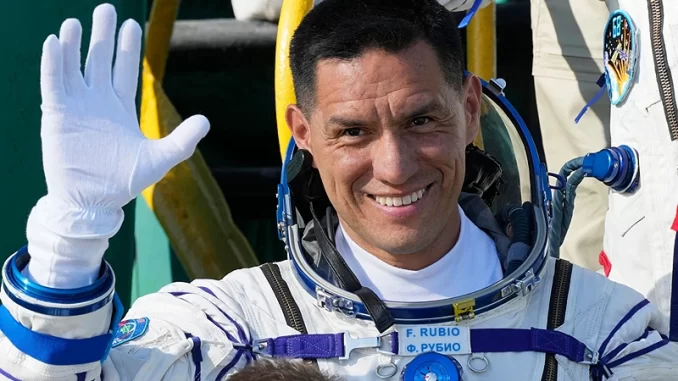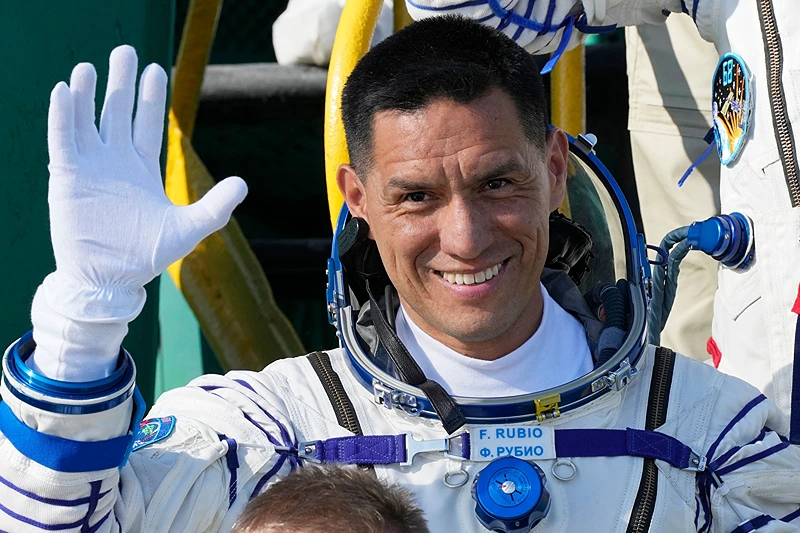

OAN’s Abril Elfi
3:38 PM – Wednesday, September 13, 2023
A NASA Astronaut, Frank Rubio, has accidentally broken the record for the longest trip to space in United States history.
Advertisement
On Monday, 47-year-old Rubio, who has been aboard the International Space Station since September 2022 adding up to a total of 355 days, beat the previous record set by retired NASA astronaut Mark Vande Hei for the longest trip to space.
Rubio is not expected to return to Earth until September 27th, making him the first American and the eighth person in history to spend more than a year in space.
NASA Administrator Bill Nelson said in a statement posted on X, formerly known as Twitter, that Rubio is paving the way for future generations of astronauts.
“Frank Rubio’s journey in space embodies the essence of exploration. As he breaks records as the longest serving @NASA US astronaut in space, he also paves the way for future generations of astronauts. Your dedication is truly out of this world, Frank!” he said.
Nelson and NASA Deputy Administrator Pamela Melroy called Rubio to congratulate him on breaking the record.
Rubio’s mission was only supposed to last six months when he left aboard Russia’s Soyuz MS-22 spacecraft alongside Russian cosmonauts Sergey Prokopyev and Dmitry Petelin.
However, on the day of a scheduled spacewalk in December 2022, an exterior leak was noticed from Soyuz MS-22, which was later revealed to be caused by a micrometeorite strike.
Because the spacecraft was unable to complete a crew return, the three astronauts’ stay was extended by six months. MS-22 returned to Earth unmanned, and MS-23 was launched in February 2023 as a replacement and docked at the ISS.
Stay informed! Receive breaking news blasts directly to your inbox for free. Subscribe here. https://www.oann.com/alerts

